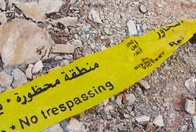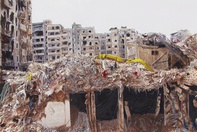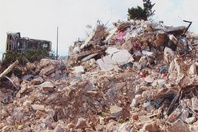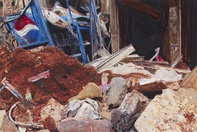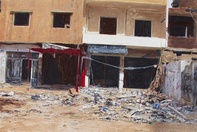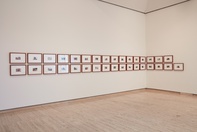Khaled Sabsabi
Sydney
2017
Displayed 2017 at Art Gallery of New South Wales
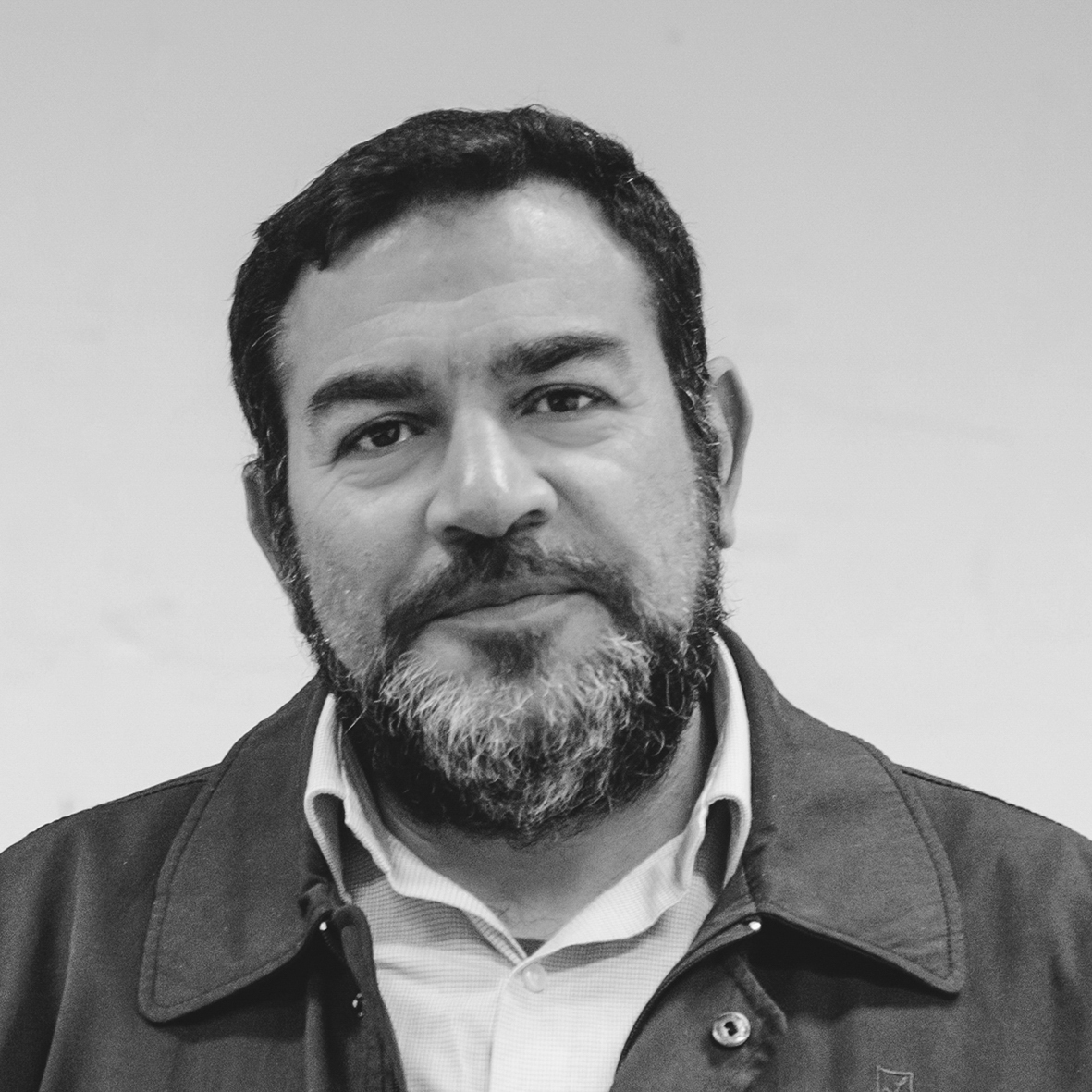
Khaled Sabsabi
Born 1965, Tripoli, Lebanon. Lives and works Sydney
Khaled Sabsabi migrated with his family to Australia in 1978. In 2001 he travelled back to Lebanon and the surrounding regions for the first time. This extended travel period became a significant moment in his career, forcing him to question, rethink and redefine his practice. Sabsabi is a multi-media and site-specific installation artist. His process and practice involves working across art mediums, geographical borders and cultures to create immersive and engaging art experiences that question the rationales and complexities of nationhood, identity and change. For Sabsabi, art is an effective tool to communicate with people through a familiar language.
Artist text
by Pedro de Almeida
War – its prosecution and its reckoning – begets euphemism on a scale unmatched by other human undertakings. More than the wilful obfuscations of politics, more than the veiled confessions of religion, and yet more than the many humorous and profane substitutions employed to describe desires of the flesh, war is sparked and shaped by all three of these concerns, which is perhaps why its naked reality is so often unspeakable. To consider a glossary of euphemistic terms employed by warmongers, their apologists and opponents alike is to apprehend civilisation’s capacity for a paradoxical trait: shameless confession matched by self-imposed delusion. As words lie, so do images – almost always.
In this sense, the subject of Khaled Sabsabi’s new body of work, Guerrilla (2016), is the utility of images in prefiguring disputes over collateral damage in the contemporary mediascape. Undoubtedly one of the more cynically creative euphemisms of modern warfare, ‘collateral damage’ as a term offers a businesslike definition of the death and destruction inflicted by ‘unintentional’ military attacks. That the term emerged as an addendum to another euphemism, ‘friendly fire’, yet further masks its horror. Comprising thirty-three individual 4x6-inch photographs – the standard dimension of snaps in any family album – whose surfaces are overlaid with meticulous handpainted renditions by the artist, Guerrilla is a deeply personal rumination on the futility of apprehending questions of legitimacy in war, its reasoning and representation.
Guerrilla emerged following Sabsabi’s time in Lebanon, his country of birth, over the final days of the 2006 ‘July War’ between Israel and Hezbollah forces, which raged for 33 days. Shaken by the destruction of familiar neighbourhoods in Beirut and cities along the Mediterranean coastline, Sabsabi mutely recorded the immediate aftermath of the rockets and mortar shells that had rained down on targeted sites of crucial infrastructure and whatever civilians might be in their vicinity. In this instance of war, as throughout the history of the Arab–Israeli conflict and of Lebanon’s ruthless two-decade civil war, any and all claims of unintentionality are spurious and contested on all sides. War is ugly and yet, paradoxically, images do not necessarily make it so. From antiquity until now, scenes of war are embedded with an attractiveness that appeals to humanity’s darker, more atavistic appetite. To take brush and paint to these intimately scaled facsimiles of the real, as the artist does, is to both acknowledge this and attempt to reorder its depressing logic.
The Palestinian public intellectual Edward Said is reported to have declared on his deathbed, ‘document, document, document’. If this were all that needed to be done in order to understand something of ourselves and our time, everything would be illuminated in archives instead of concealed, as documents so often are, no matter how ‘dumb’ their generative brief. Of course, Said demonstrated over his lifetime that in fact hard-headed, hard-earned scrutiny, in tandem with documentation, is what’s really required. Khaled Sabsabi’s Guerrilla is an admission that the economy of imagery in art, as in news media, can only get us so far in this vital task.
